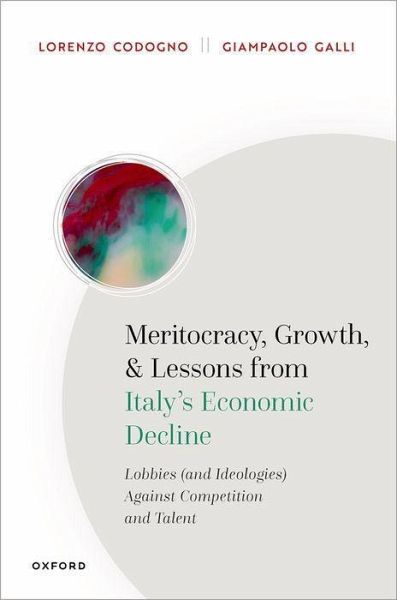
Meritocracy, Growth, and Lessons from Italy's Economic Decline
Lobbies (and Ideologies) Against Competition and Talent
Versandkostenfrei!
Versandfertig in über 4 Wochen
98,99 €
inkl. MwSt.
Weitere Ausgaben:

PAYBACK Punkte
49 °P sammeln!
Italy's recent economic decline presents many lessons on the importance of meritocracy for economic growth. Connections, rather than merit, are a long-standing feature of the Italian elites. This book uses international comparisons on social capital, governance, education, corporate standards, and more to evaluate Italy's economic performance.













